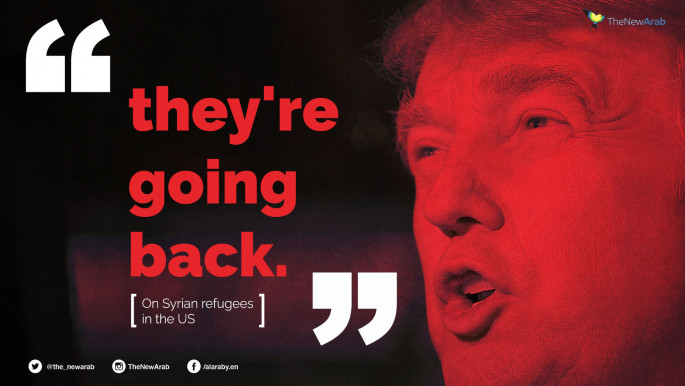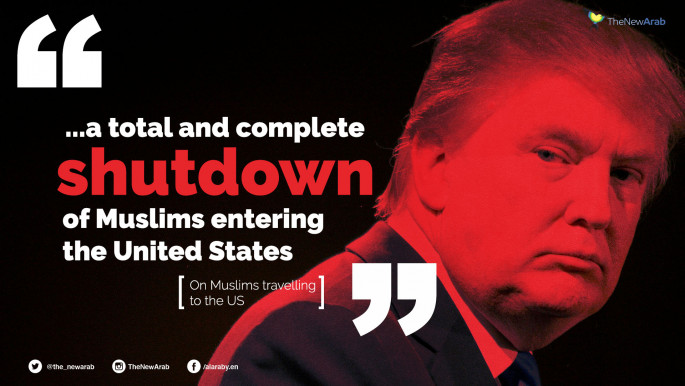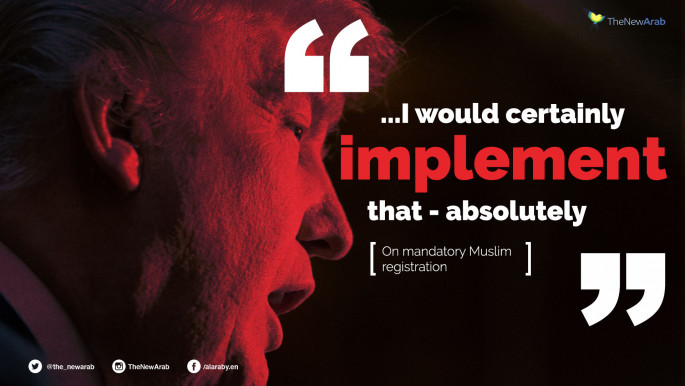
American white supremacy rears its ugly head
What's in a name? Since Trump became president-elect of the United States, the underbelly of American white supremacy has flipped atop the news cycle, and outlets are struggling with what to call this movement.
For sure, I am uncomfortable making sweeping statements about 60 million Trump voters; but there is clearly an identifiable and vocal segment that espouses xenophobia and white supremacy. And if naming something renders it clear, "white-supremacist" is the appropriate name for this movement.
The underpinnings of the birther movement
Donald Trump made a fashionable entry onto the political scene with his association with the birther movement. The movement, though focused exclusively on whether President Obama was born in the US, implied that a black man of direct African ancestry could not serve as president of the United States.
In other words, the movement discriminated against the current president. As Bernie Sanders argued, no one raised doubts concerning the birthplace of other presidents who happened to be white.
The presidency of Barack Obama exposed a sediment of American culture that revolves around the notion of white supremacy. There were many instances in which President Obama was treated in a way that other presidents simply were not, regardless of the breadth of their political divide during their time in office.
Representative Joe Wilson shouted "you lie" as President Obama addressed congress in 2009. Anyone who saw the televised speech would note that Wilson seemed unable to contain himself. It was an outburst, plain and simple. I never saw or heard of a president being yelled at during a formal speech to congress.
 |
Richard Spencer led a Nazi-like salute among 200 people, exclaiming 'hail Trump, hail our people,' in celebration of Trump's victory |  |
Governor Jan Brewer wagged her finger in President Obama's face as they met in Arizona. Though President Bush was the single most incompetent President of my lifetime - leading the nation into an immoral and illegal war based on lies - many insisted we must "respect the office".
The same kind of respect was not extended to Obama.
At play in these dynamics was the totalitarian grasp of white privilege: Whites are taught through education, that the only enlightened part of the world is Europe. The contributions of other civilizations to world history are neglected and marginalised.
Orientalist and racist media images have historically reinforced the idea that whites are besieged by barbarians waiting to overcome them. The birther movement implied all these things. It hinted that the presidency was somehow "stolen". And Trump was the most famous face and patron of the birther movement. As a branding strategy, it served him well. No one could have imagined that only five years later he would be elected president of the United States.
White supremacy vs racism
I am of the opinion that we must begin to more clearly identify the factors leading to the current cultural clash in the United States. Since Trump's election, much has been said about "bigotry," "racism" and the like, but I am beginning to think that these words are problematic.
| Read more: California mosques receive letters promising genocide, praising Trump |
There is no consensus as to what constitutes a racist person. I may think someone who does not want their child in an interracial relationship is a racist, while they themselves refuse such a label.
They might explain that they prefer to maintain certain traditions and that interracial children will have "identity problems," the same person may also be quite critical about injustices carried out against minorities. So are they racist? Who decides?
 |
Trump was the most famous face and patron of the birther movement. As a branding strategy, it served him well |  |
There is also somewhat of a double-standard, when we refer to a white person as a racist, it carries a strong moral weight. Yet, the argument has been made that African-Americans, for example, cannot be racist because they lack the structural and institutional privilege to exercise discrimination against others.
So it seems racism is structural; related to systems. When Donald Trump argued he would "ban Muslims," "keep out Mexicans," and maintain "law and order," systemic racism was clear, because he simply never could have spoken that way as a black man talking about whites or as a Muslim speaking of non-Muslims in America.
| Comment: The Syrian rebellion - the first of Trump's many victims? |
But if you ask Trump's supporters if they consider themselves racists, my guess is they would answer no, thus there is no consensus on what constitutes a racist and if no such consensus exists, then logical dialogue cannot proceed.
The term white supremacy however is clearer. This past week, Richard Spencer led a Nazi-like salute among 200 people, exclaiming "hail Trump, hail our people," in celebration of Trump's victory.
 |
If you maintain white supremacist ideas, you cannot challenge systemic racism |  |
Spencer, who popularised the term "alt-right" leads the National Policy Institute, a white supremacist think tank advocating for "a new society, an ethno-state that would be a gathering point for all Europeans," calling for "peaceful ethnic cleansing". The underlying logic of this sentiment is the idea that European culture, values and religions are somehow superior to Asian and African traditions.
What I find interesting about this notion is, unlike the notion of racism, far more people would actually admit to such a belief.
It is commonplace to hear arguments made about the superiority of "western civilisation". Further, this is clearly not something that just manifests itself on the right, but also in figures such as Bill Maher.
Now that we enter the era of Trump, western liberalism is being truly challenged. And the inherent contradiction between liberalism and the white supremacism constantly accommodating it, is explicit.
If you maintain white supremacist ideas, you cannot challenge systemic racism, even if you claim to, and it is easier to identify white supremacist beliefs because there is some consensus as to what it looks like.
Laith Saud is a writer and scholar. He is currently Visiting Assistant Professor of Religious Studies at DePaul University and co-author of An Introduction to Islam for the 21st Century (Wiley-Blackwell). Follow him on Twitter: @laithsaud
Opinions expressed in this article remain those of the author, and do not necessarily represent those of The New Arab, its editorial board or staff.
 |
 |
 |





 Follow the Middle East's top stories in English at The New Arab on Google News
Follow the Middle East's top stories in English at The New Arab on Google News


